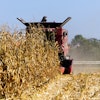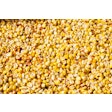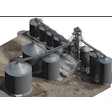Occasionally, I find myself in a conversation with a stranger or an acquaintance, cringing as I catch myself mindlessly talking about the weather. Dicussion of the weather, for me, is thoughtless go-to filler for awkward silences or a transition into friendly chit chat. This being said, sitting at my desk in Fort Atkinson, WI, today, writing my column on January 31, I am compelled to talk about the weather. Outside, the sun is shining and it is 50 degrees. Clarifying, as not to make assumptions about the reader's understanding of an upper Midwestern winter, this is highly abnormal.
Trust me, I'm not complaining — and I must mention I don’t have strong feelings on the subject one way or another — but I can see where proponents of the global warming theory are drawing convincing empirical data. The Internet was a buzz this week surrounding the Wall Street Journal article, “No Need to Panic About Global Warming,” complimented by a subhead reading, “There's no compelling scientific argument for drastic action to 'decarbonize' the world's economy.”
The opinion piece, “signed” by 16 scientists, argues the world does not need any wide-sweeping regulations, i.e. “drastic actions,” to combat global warming. Citing what is referred to as the “Climategate” email from climate scientist Kevin Trenberth: "The fact is that we can't account for the lack of warming at the moment and it is a travesty that we can't."
The cyclical, predictable nature of climate ebbs and flows is at the core of the life’s work of Elwynn Taylor, professor of ag meteorology at Iowa State University in Ames, IA. In his presentation at NGFA’s Annual Country Elevator Conference, Taylor today’s seemingly extraordinary temperatures are nothing more than typical extremes of compared with the temperatures of other La Niña years during the 1950s and 1970s.
“It may suddenly shift again when its influence by El Nino,” Taylor says, referring to the patterns of the North Atlantic Oscillation (NAO), that in conjunction with El Niño or La Niña, is responsible 50% of climate variability on the Earth (source: NASA Earth Observatory).
Thanks to this presentation, I can drop a little scientific data into my weather-centric banter.
If you’re curious about the work of Elwynn Taylor and his observations about how the weather is impacting agriculture and yields, follow him on Twitter @ElwynnTaylor.










